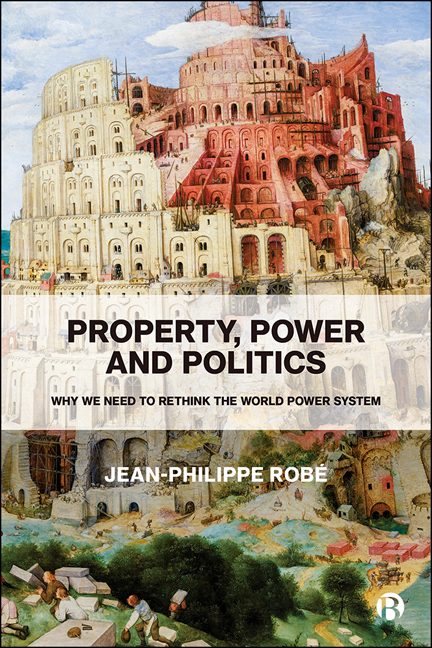3 - Sovereignty and Property
Published online by Cambridge University Press: 12 March 2021
Summary
The preceding chapters addressed the modern notion of property and its role in the liberal constitutional mode of government. In Chapter 1, the concept of property was explained as a right of decision-making as a matter of principle towards the object of property. In Chapter 2, private property was analysed as a constitutional prerogative protecting owners against excessive public governmental encroachments to their autonomy. It showed that as a right of decision-making as a matter of principle, property is part of a Power System which combines despotism and democracy in its governance.
The present chapter deals with the relationship between the concepts of sovereignty and property. It first addresses the thesis developed by Douglass North, John Wallis and Barry Weingast on the role of organized violence in the development of a modern, open access society. Their intuition is that the present-day ‘Western-type’ society required a fundamental change from earlier societies. The ‘limited access order’ of the ‘natural state’, in which personal relationships form the basis of social organization, had to leave the way to an ‘open access order’ in which impersonal categories of individuals interact. In my own analysis, this is broadly correct. But North, Wallis and Weingast neglected the role of law in the process and, in particular, the role of the development of constitutional modes of government. Via modern international law, starting in Europe in the middle of the seventeenth century, sovereignty was allocated among States. Via liberal Constitutions, internal sovereignty within States was decentralized as a matter of principle to owners, who are the decisionmakers as a matter of principle towards the objects of property they own. The operations of the political Organs of the State, of the administrative Organs of the State and of the legal rules protecting this autonomy can usefully be viewed in this perspective.
Constitutionally protected property rights are a decentralization of the power of rule-and decision-making towards the objects of property. Owners have authority towards the use of their objects of property, and therefore on those using them, ‘as a matter of principle’. As written by Kingman Brewster in his article on economic federalism, ‘the virtue of leaving considerable economic power in private hands is not too dissimilar from the virtue of leaving considerable political power in the federal States of a federation’.
- Type
- Chapter
- Information
- Property, Power and PoliticsWhy We Need to Rethink the World Power System, pp. 107 - 136Publisher: Bristol University PressPrint publication year: 2020

